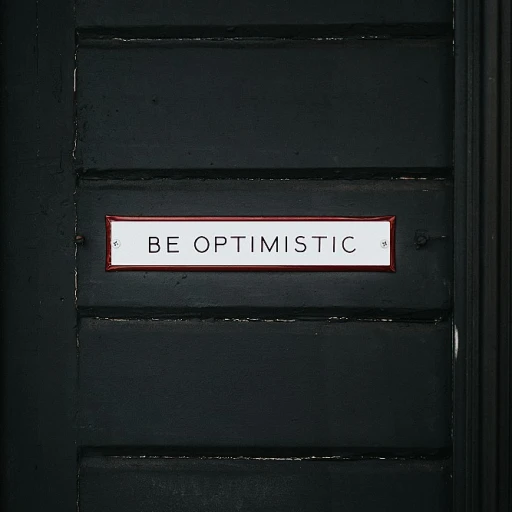
Understanding the Importance of a Sick Day Message
Crafting a Genuine Sick Day Note
Communicating a sick day effectively in a remote work setting is crucial not only for maintaining healthy professional relationships but also for protecting one's health and work-life balance. The importance of a well-crafted sick day message cannot be understated, as it bridges the gap between you and your manager, ensuring transparency concerning your absence while respecting personal boundaries. When feeling unwell, it can be challenging to delineate your inability to work, especially from home where work continuation might seem feasible despite illness. Yet, it is essential to prioritize mental health and overall well-being. Expert insights reveal that an effectively communicated sick day encourages a focus on recovery, fosters mutual respect with your boss or manager, and helps maintain the integrity of your role and responsibilities. A concise yet comprehensive sick text or email should relay key details – why you're unable to work today, mentioning any pertinent family reasons or emergencies if applicable. It should show appreciation for the understanding shown by your team or company, and if necessary, provide a timeline of your intended return to work. Additionally, employees should not hesitate to affirm their commitment to managing any upcoming workload once fit to return, thus easing any concerns about missed calls or texts during recovery. For some helpful insights into flexible work arrangements, which can often support employees during such times, refer to unveiling the benefits of Flexwork.Etiquette for Sending a Sick Day Text
Crafting Professional Sick Day Texts
When you're feeling unwell and need to take a sick day, sending a prompt and professional message to your manager is crucial. This step maintains transparency and ensures that your work commitments are managed during your absence. Here's how to craft a polite and informed sick day text, keeping work-life balance in mind.
- Good Morning Ritual: Start your message with a courteous greeting, such as 'Good morning.' This sets a respectful tone and aligns with company culture.
- State the Reason: Clearly mention your health day. Whether it's due to sudden illness or a family emergency, stating the reason for absence helps your boss understand the gravity of the situation.
- Provide Sufficient Details: It's vital to include appropriate details, like the expected length of your absence and any critical tasks that may need attention. This transparency helps manage workload effectively and avoids misunderstandings.
- Offer Alternative Arrangements: If possible, suggest alternative arrangements, such as another team member who can cover your responsibilities. This gesture shows your commitment to teamwork even on a sick leave.
- Simplicity is Key: Keep your sick day text straightforward. Avoid over-explaining your illness or personal life but assure your manager that you will return to work as soon as you're feeling better.
- Consider Mental Health: It's important to acknowledge mental health as part of your overall health. If your absence is due to mental health issues, simply mention you're taking a health day.
By following these etiquette guidelines, your sick day message will be well-received and maintain a professional relationship with your manager and colleagues. Remember, prioritizing your health allows you to return to work refreshed and ready to meet your responsibilities.
Choosing the Right Communication Tools
Effective Tools for Communicating Your Sick Leave
When you're feeling unwell and need to inform your manager or boss about your absence, selecting the right communication tool is crucial. Whether it's a text message, email, or phone call, the method you choose can impact how your message is received and how quickly your work life can adjust to your temporary absence.
Each company may have different protocols for reporting a sick day, but there are some common practices that work well across various work environments:
- Text Message: Sending a quick text can be the best choice if you're short on time or feeling too ill to engage in a lengthy conversation. It's also useful for family emergencies or sudden illness when calling in sick isn't feasible.
- Email: An email allows you to include more details about your absence and any necessary work handover. It's ideal if you need to outline specific tasks that need covering or if you're taking a longer sick leave.
- Phone Call: While less common in remote work settings, a direct call can be appropriate if your company requires a more formal notification. It may also be preferred by some managers for immediate discussions about any pressing work matters.
When choosing your method, consider the company sick policy and your manager's preferences. Always ensure your notification is sent with enough time for them to adjust to your absence. This means sending your message early in the day, preferably in the morning, to give them time to plan for the day.
Regardless of the method, balancing transparency and privacy is essential when communicating your reason for absence due to an illness or mental health day. Focus on clarity over detailed personal health information to maintain a professional boundary.
For those exploring how to boost their remote work efficiency, optimizing remote workflows can be a valuable resource.
Balancing Transparency and Privacy
Striking the Right Balance Between Openness and Confidentiality
In the realm of remote work, maintaining a balance between transparency and privacy is crucial when composing your sick day message. While it’s important to keep your manager informed about your absence, there’s no need to divulge every detail of your illness or personal situation.
Here are some guidelines to help you strike the right chord:
- Keep it Professional: Start your message with a polite greeting such as "Good morning", followed by a straightforward statement about your sick day, like "I'm feeling unwell today." This sets a respectful tone from the outset.
- Maintain Your Privacy: Your boss doesn’t need to know intricate details about your health condition. A brief mention of "illness" or "family emergency" suffices as a reason for your absence without compromising your privacy.
- Be Clear and Concise: Include necessary details about your unavailability, anticipated return work date, and how your responsibilities will be managed in your absence.
- Express Willingness to Stay in Touch: While unwell, you might not be able to handle work responsibilities, but express willingness to stay connected for any urgent matters, ensuring both responsibility and respect.
This approach not only respects your work-life balance but also strengthens trust with your manager and colleagues. Dynamic professional communication like this acknowledges both the needs of the employee and the operational imperatives of the company.
Managing Workload and Responsibilities
Efficiently Handling Your Tasks and Duties
Dealing with the responsibilities of your job during a sick day can be daunting, especially when feeling unwell. It is essential to address your workload and ensure that everything is in order before taking your leave. Here are some strategies to help balance your professional obligations with your health needs:
- Inform Your Team: Once you know you'll need to take a sick day, promptly send a clear text message or email to your manager and team. Include critical details like the reason for your absence and whether it's a family emergency or due to illness.
- Delegate or Share Work: If there are pressing tasks that cannot wait until your return, identify a colleague or team member who can assist temporarily. Brief them on essential facts to ensure continuity.
- Prioritize Vital Responsibilities: Before your absence, ensure that any crucial tasks are either completed or set up to be handled. This eases the transition back to work and reduces the potential stress on the team.
- Update Automated Responses: Set up an out-of-office notification with a simple message indicating your absence and expected return. This keeps clients and other contacts informed without leaving them uninformed.
- Maintain Open Communication: While maintaining privacy about personal health details, be willing to communicate updates as needed. Transparency with your boss and team aids in adjustment and mutual understanding.
By following these methods, you ensure your responsibilities won't be a burden and can focus on recuperating effectively. As always, your health should be your priority, enabling you to return to work refreshed and ready.
Returning to Work After a Sick Day
Getting Back to the Grind: Easing into Your Workload
Returning to work after feeling unwell can be a bit challenging, especially if you've taken a sick day due to illness or a family emergency. Here are some steps to help you ease back into your responsibilities while ensuring your health and work-life balance remain intact:- Review Pending Tasks: Before diving into your usual routine, take a moment to assess your workload. Check any messages or emails that might have popped up during your absence. It will give you an idea of what requires immediate attention and what can wait.
- Communicate with Your Manager: Inform your manager or boss about your return. A brief text message or email about your availability can help realign expectations. Share any details regarding your current health status if it affects your work.
- Prioritize Work: Identify which tasks are urgent and require your immediate focus. Tackling high-priority tasks first will prevent work from piling up and reduce stress.
- Monitor Your Health: Pay close attention to how you're feeling throughout the day. Taking care of your mental health and physical well-being is integral once you return to work. If necessary, consider a gradual reintegration instead of jumping back full time.
- Coordinate with Colleagues: In case team members have filled in during your absence, coordinate with them to gather any essential updates. This helps in managing continuity and ensures no gaps in tasks.













